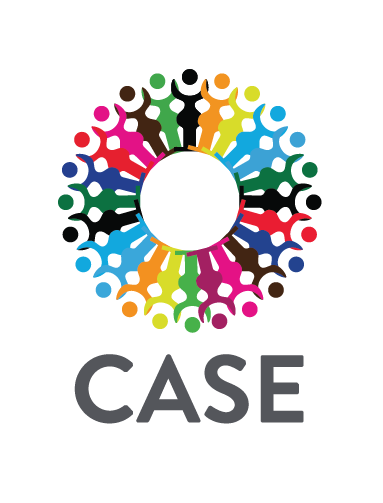A Sao Miguel Couple Takes a Leap to Trois-Rivieres
By Chrissy Kapralos
Angela and Carlos are a young married couple who recently moved from Sao Miguel, the largest of Portugal’s Azorian islands, to Trois-Rivieres. Here’s what they had to say about their experience adjusting to life in Quebec as primarily Portuguese and English speakers with basic French.
Interviewer: How long have you been in the area, and what’s life like in Yamachiche?
Angela: We’ve been here [Yamachiche] for four months. A company was hiring here, so we grabbed the opportunity. Maybe we would visit [Quebec] another time in life, but it was mainly the work that drew us here. Yamachiche is a small village, a few habitants, not much. I think it only has one cafe.
Carlos: People are nice. Yamachiche has a lot of immigrants — Colombia, Mauritius, Mexico, Madagascar. Some of the immigrants speak French. A guy that lived here for 10 years never learned French— I don’t know how he managed to do it.
We also like to go to Louiseville, right next to Yamachiche — for shopping for everything — there or Trois-Rivieres, but mainly Trois-Rivieres. We like the city for socializing, shopping, and sometimes have to visit to access government services.
How’s your French? Rate it out of 10. How did you learn it?
Angela: Maybe 6/10. I knew some French from school in Portugal — it was taught as a subject, so many Portuguese people know a bit of French. But otherwise, I’ve picked up new phrases from day-to-day life here, like going to the supermarket.
Carlos: Mine is way worse — 3/10. I can make myself understood but not in the correct way — I haven’t spoken French for 15-18 years.
We arrived in Quebec knowing some phrases, words, but the pronunciation between France and Quebec French are completely different. We got here thinking we would understand more, but we were shocked to see we couldn’t understand basically anything.
For example, “twenty” in French sounds different from “twenty” in Quebec. Same with “hour.” I know what framboise means, coconut — cerises — some words are similar to Portuguese or English, so it’s helpful.
Do you take classes?
Angela: Not yet — but we plan to.
Carlos: We’re looking at the government sites — Quebec has a program for learning French and they will pay you $800. But we’ve tried some apps like Duo Lingo, Babel… I didn’t like Babel. And Duo Lingo, it didn’t work. I can learn some words but I can’t apply them. It’s like saying apple or orange…nothing practical for conversation.
How different is the culture in Trois-Rivières vs. Portugal?
Angela: I don’t experience a specific culture here — we can see some of Europe but here it’s more mixed. Everything for every culture.
But Quebec has a strong culture, no?
Angela: We actually see people here from lots of countries. Down the street there’s an Indian restaurant — we wouldn’t see that back home. We haven’t connected to the Quebecois culture so much yet. But we have noticed they differentiate themselves from other Canadians. They are proud to have French heritage.
Do you feel welcome here?
Carlos: We feel welcome here — we heard lots of things about discrmination against immigrants but so far so good. Even if we don’t speak French they will try to make their way to help us understand.
How has your limited French affected your new life in Trois Rivieres?
Angela: A lot. It’s been hard. We found it hard in the beginning because nobody speaks English enough for us to understand. They only speak French, so I felt obligated to learn more French. It’s a good thing but it’s still difficult.
The hardest is banks, phone services, immigration... Nobody speaks English – it’s so stressful. We needed to bring a friend to translate the language for us to get EVERYTHING. Without our friend we feel it might have been impossible.
Carlos: It’s really hard to meet people without French. Most groups speak French — it’s stressful to get into the conversation and make friends with a new group.
We mainly meet people at work (food processing plant). They speak bad English, but we adjusted – intuition, we spent every day with them. We’d understand 1/10 words in a phrase and make our own way to understand people.
How about hospitals and medical services?
Angela: First of all, we didn’t find anyone who spoke English at the front desk. Kind of weird and it’s a hospital, and we’re in Canada.
We had to ask so many people to find someone who spoke English. The doctors themselves were a big problem. They’d stare at me waiting for me to say something in French — they’d say “I don’t speak English.”
I understand it’s Quebec, but it’s a mix of cultures — you can’t expect just to do one. More English-speaking people in service positions would be better.
Do you have any tips and tricks for navigating language barriers?
Angela: Take a course. We wish we had taken one sooner, but we’ve just been busy. Listening to French songs helped me too.
Carlos: I listen to some podcasts like French Made Easy – they say a phrase, common phrases that you need and they repeat it several times in French and that’s more useful. Also, Google Translate is a must.
What do you like about living in Trois-Rivières?
Carlos: Money and work-life balance. In Portugal, one of our entire incomes covers just the rent. We can’t eat out in a restaurant each weekend on our wage there, we can’t buy clothes. But here, it’s manageable to enjoy things more. Overall, the French is the only obstacle but we’re working on it.
